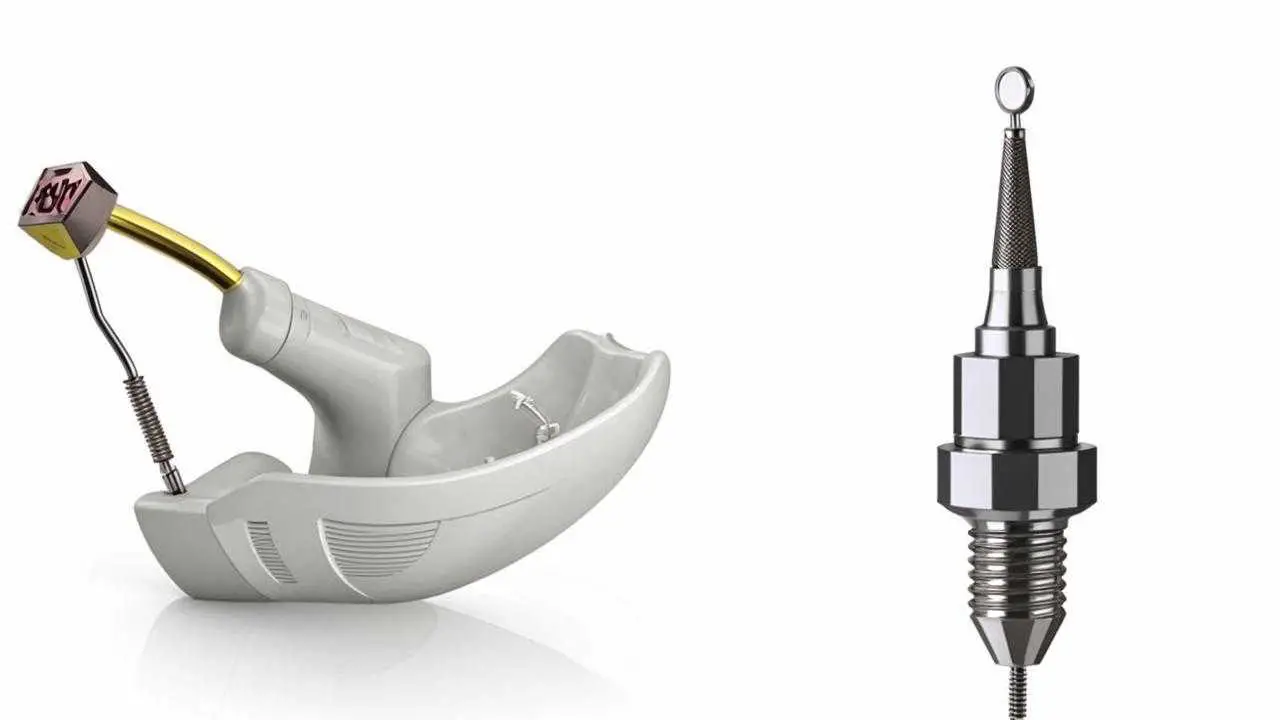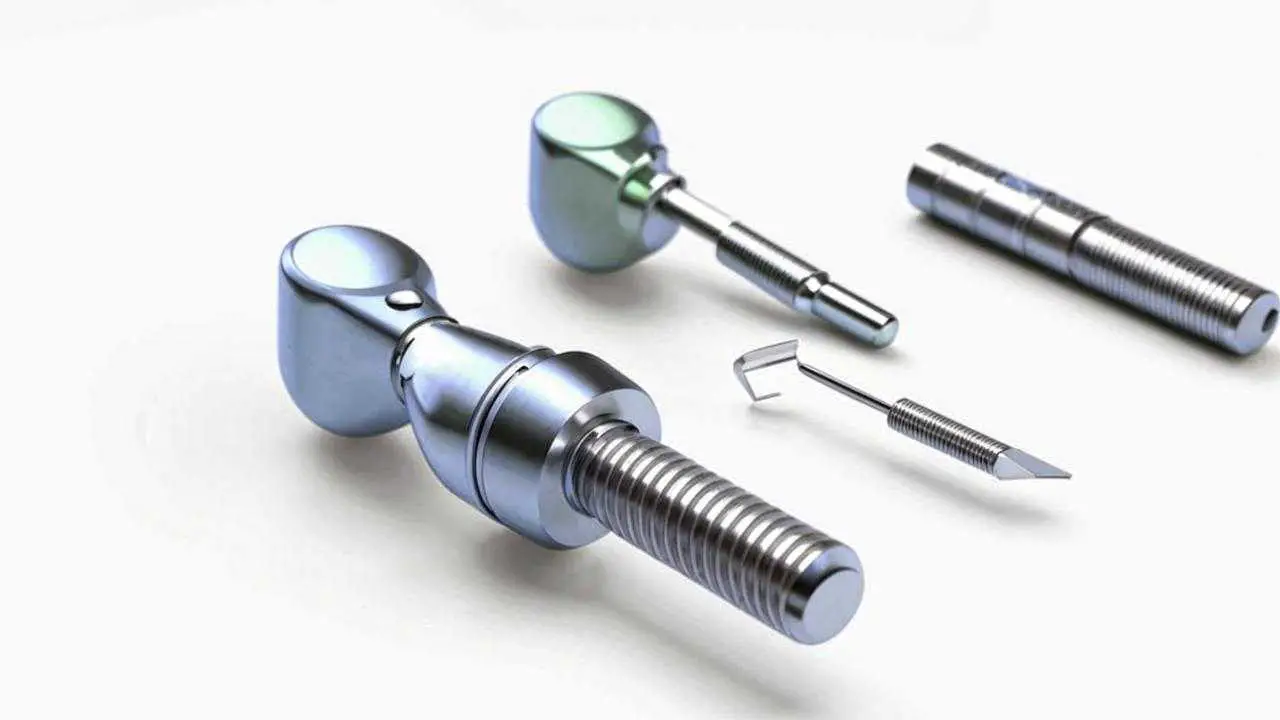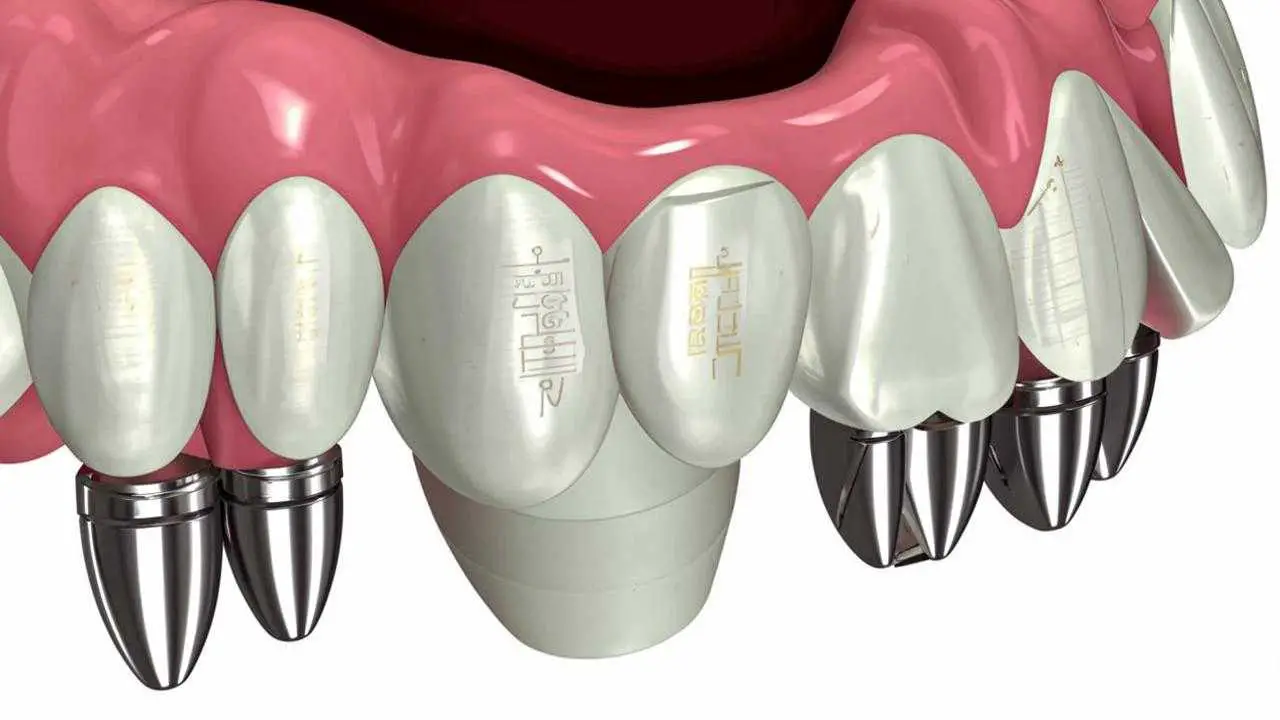Implant prosthetics is the most physiological way to restore missing teeth. The essence of the method is that an artificial tooth root is implanted into the gum, on top of which an orthopedic structure (crown, bridge) is placed. But in order to make the prosthetic system look natural, fit tightly to the gum, firmly fixed to the implant, special suprastructures are used – gum shaper and abutment.
The gum shaper is not always placed during implantation. It is not used in case of complete jaw adentia, when one-stage technologies with immediate loading with a prosthesis are used to restore the dentition. Installation of this suprastructure is necessary in a two-stage protocol. Without it, it is not possible to achieve a correct gingival contour so that the denture looks natural and aesthetic.
In one-stage techniques, the placement of this element is more often skipped. In these cases, one-piece implants are usually used, which are immediately loaded with the prosthesis. If two-piece models are used and a temporary denture is placed on day 3, the implantologist sometimes places a suprastructure to preserve the gingival margin.
This is especially true when it comes to restoring anterior teeth. Here the focus is more on aesthetics, and it is almost impossible to achieve a beautiful smile without the use of this suprastructure.
What is it?
The gingival shaper is a miniature titanium cylinder with a screw stem, identical in size to the future abutment. Thanks to the fine threads, the suprastructure is securely attached to the implant. After the gum shaper is placed, soft tissue begins to grow around it, forming a smooth, beautiful contour.
The shaper is often confused with the abutment. In fact, the functions of these elements are different:
- إنabutment is an adapter between the root part of the implant and the prosthesis. It is necessary for reliable fixation of the prosthetic structure on the titanium root, it is installed after the forming substructure has fulfilled its task of restoring the anatomical shape of the gum.
- إنshaper is a temporary structure that is used toform a correct, even gingival contour around the implant.
The element can be inserted immediately after the implant is embedded in the jawbone, or 3-6 months after surgery (when the artificial root has fused with the bone tissue).
Indications for insertion
The jawbone in the area of the missing tooth, ceases to receive the necessary load, gradually begins to resorb. Periodontal tissues lose elasticity and subside. Soft tissue subsidence is a direct indication for the use of a shaping component. The element prepares the gingiva for the insertion of the prosthesis.
A peri-dental roll is formed around the component, which additionally stabilizes the implant for the period of its osseointegration. The doctor keeps the process of soft tissue fouling under control, determining the time of removal of the shaper and placement of the abutment.
موانع الاستعمال
Contraindications to a formative suprastructure are:
- Acute periodontitis;
- Insufficient primary stabilization of the artificial tooth root;
- The implant is difficult to graft;
- deterioration of the patient’s well-being after implantation;
- Influenza, acute respiratory infections, acute respiratory viral infections.
After installation of the shaper, the height and contour of the gingival margin begin to recover, the hole for the artificial crown is formed, the gingival tissue is compacted.
Materials and manufacturers
In the manufacture of implant systems and auxiliary products, medical titanium, stainless steel, other metal alloys are used. For installation in the frontal zone, there are models made of zirconium, which do not show through the gum tissue. Manufacturers offer different models of shapers. The doctor selects the variant according to the clinical situation. The classification is based on the shape, size and type of the part. In the line there are standard, narrow, wide models.
Standard models are used in cases involving a translingual method of intervention. The surface of the element is marked with markers that allow you to control the level of soft tissue fouling. If the diameter of the prosthetic structure is more than 5 mm, wide models are used, if it is less than 5 mm, narrow models are used.
The most famous manufacturers of implant systems and their components:
Of course, the list is not limited to the listed brands. For a good result, it is recommended to install implants and auxiliary components of the same manufacturer. In our clinic, the cost of the shaper is included in the price of the implant.
How the gum shaper is placed
Thanks to the thread, the implantologist simply screws the shaping cylinder into the artificial root. The stages of placing the shapers on the implants depend on the protocol used.
Placement of the shaping component in the two-stage method
- The structure is inserted 3 (lower jaw) or 6 (upper jaw) months after implant placement;
- the doctor makes a small incision in the implant area, removes the plug and screws in a gum shaper in its place;
- after 2-3 weeks (time for proper tissue fattening), the element is removed. Instead, an abutment is screwed in, on which the prosthesis made from the impression is fixed.
How the gum shaper is installed after implantation in one-stage technologies
The procedure takes one stage – the doctor minimally invasively implants the implant with an abutment, on which the adaptive prosthetic system is fixed immediately or after 2-3 days. Soft tissues grow around the artificial root. Implantologists believe that in one-stage implantation, you can do without a shaper, because the aesthetics of the gingival contour is fully preserved.
If the doctor has done everything correctly and the patient carefully follows the care recommendations, no complications will arise.
Recommendations for postoperative care
- Avoid solid foods for a week after the intervention;
- refrain from eating too hot or cold foods;
- rinse the mouth with antiseptics, herbal decoctions recommended by the implantologist;
- take medications prescribed by the doctor;
- stop smoking until the tissues are completely healed.
Possible complications
The most common complaint after suprastructure placement is pain in the gum. During the first 2 days after the intervention, the soreness goes away. If the pain after the installation of the gum shaper persists for more than a week, while its intensity increases, it is necessary to urgently consult a doctor. Probable causes of pain:
- The doctor tightened the component too much, which led to compression of soft tissues or bone damage;
- the gum hurts after the installation of a gum shaper due to poor hygiene, which caused an inflammatory process;
- the structure is installed below the mucosa;
- the size of the element is incorrectly selected.
The latter situations arise due to incorrect selection of the model in height. Avoiding complications will allow you to contact an experienced doctor, compliance with the recommendations regarding postoperative care of the oral cavity.
How long the gum margin is formed
The formation of a beautiful gingival contour takes 2-4 weeks. This depends on the peculiarities of the body. The component is used until a uniform edge of soft tissue around the implant is formed. Removing the gum shaper is a simple procedure – the doctor unscrews the component from the implant with a wrench, and fixes the abutment in its place.
What to do if the shaper has fallen out
Sometimes it happens, the element is unscrewed, falls out of the implant. Correctly installed element, protrudes above the mucosa only 1.5-2 mm. The main reason for the loss of the suprastructure is inadequate screwing force or increased bone friability, because of which the component has loosened and does not hold in the implant. If the gum shaper has fallen out of the implant, you should see a doctor without delay. Its prolonged absence will lead to overgrowth of the hole, it will be necessary to open the mucosa again.
Cost
The cost of the gum shaper is included in the cost of the implant.


